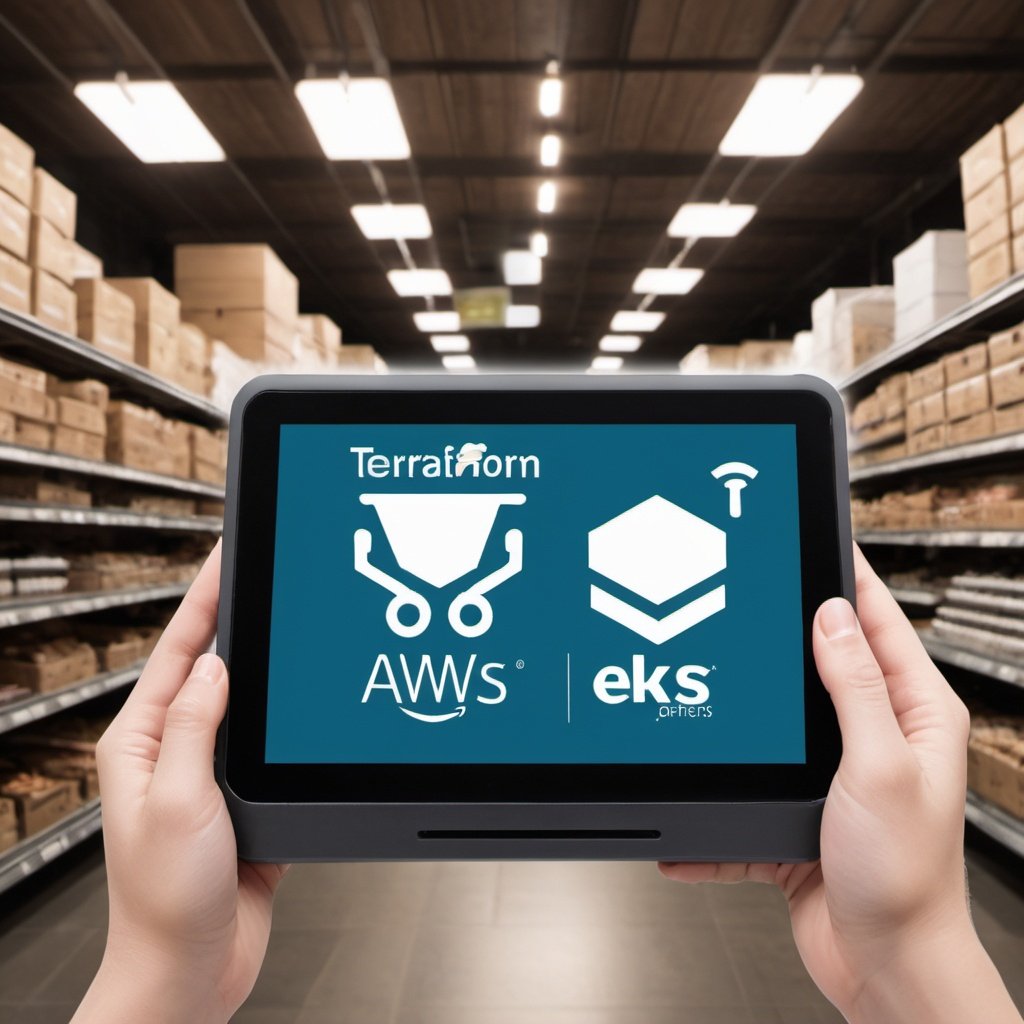Project Overview
In this engagement, AEITCH provided a comprehensive solution for deploying a Point of Sale (POS) system on Amazon Web Services (AWS) using Terraform, Elastic Kubernetes Service (EKS), and the ELK Stack. The solution involved managing 20 Docker images, leveraging various AWS services for infrastructure provisioning, deployment, monitoring, and cost optimization.
Solution Architecture
AEITCH implemented a robust and scalable architecture utilizing the following AWS services and technologies:
Infrastructure Provisioning with Terraform
- Terraform: Infrastructure as Code (IaC) was implemented using Terraform, ensuring consistent and repeatable infrastructure provisioning for AWS EKS and other AWS resources.
Kubernetes Deployment on EKS
- AWS EKS: The POS system was deployed on AWS EKS, a fully managed Kubernetes service, enabling seamless management of containerized applications.
Container Management
- Amazon Elastic Container Registry (ECR): Docker images were stored securely in Amazon ECR, a fully managed container registry.
- AWS Load Balancing: Traffic was managed using AWS Load Balancing services, ensuring high availability and scalability.
CI/CD and Source Control
- AWS CodeBuild: Continuous Integration was handled by AWS CodeBuild, automating the build and testing processes.
- AWS CodeCommit: Source code was stored and managed using AWS CodeCommit, a secure and highly scalable Git-based repository.
- AWS CodePipeline: Continuous Delivery was implemented through AWS CodePipeline, enabling automated deployment of Docker images to EKS.
- GitHub Actions: Front-end pipelines were created using GitHub Actions, enabling automated build and deployment processes for the front-end application.
Monitoring and Logging with ELK Stack
- ELK Stack (Elasticsearch, Logstash, Kibana): Comprehensive monitoring and logging solutions were implemented using the ELK Stack, enabling centralized log management and analysis for the Kubernetes cluster and applications.
Service Mesh and Caching
- AWS App Mesh: App Mesh, a service mesh, was utilized for secure and reliable communication between microservices, enabling transport of logs and metrics.
- Amazon ElastiCache: ElastiCache was used for in-memory data storage, enhancing application performance.
Automation and Cost Optimization
- Bash Scripts: Bash scripts were employed for automated cron jobs and various automation tasks.
- AWS Lambda: AWS Lambda functions were implemented to automate the scaling of Kubernetes nodes, optimizing costs by turning down resources during off-peak hours.
Staging Environment
- Bare Metal Server with Minikube: A staging environment was created on a bare metal server using Minikube, a lightweight Kubernetes implementation for local development and testing.
Front-end Deployment
- Amazon S3 and CloudFront: The front-end application was hosted on Amazon S3, leveraging CloudFront for caching and content delivery optimization.
Benefits and Advantages
By partnering with AEITCH, the retail client benefited from:
- Scalable and resilient POS system deployment on AWS EKS using Terraform for infrastructure provisioning
- Comprehensive monitoring and logging with the ELK Stack for application visibility and troubleshooting
- Automated CI/CD pipelines for efficient deployment and updates
- Cost optimization through automated scaling and resource management
- Separation of staging and production environments for testing and development
- Improved performance and user experience with caching and content delivery optimization
AEITCH’s expertise in Terraform, Kubernetes, ELK Stack, and AWS services, combined with industry-best practices, enabled the successful deployment of the client’s POS system, ensuring optimal performance, scalability, and cost-efficiency.

